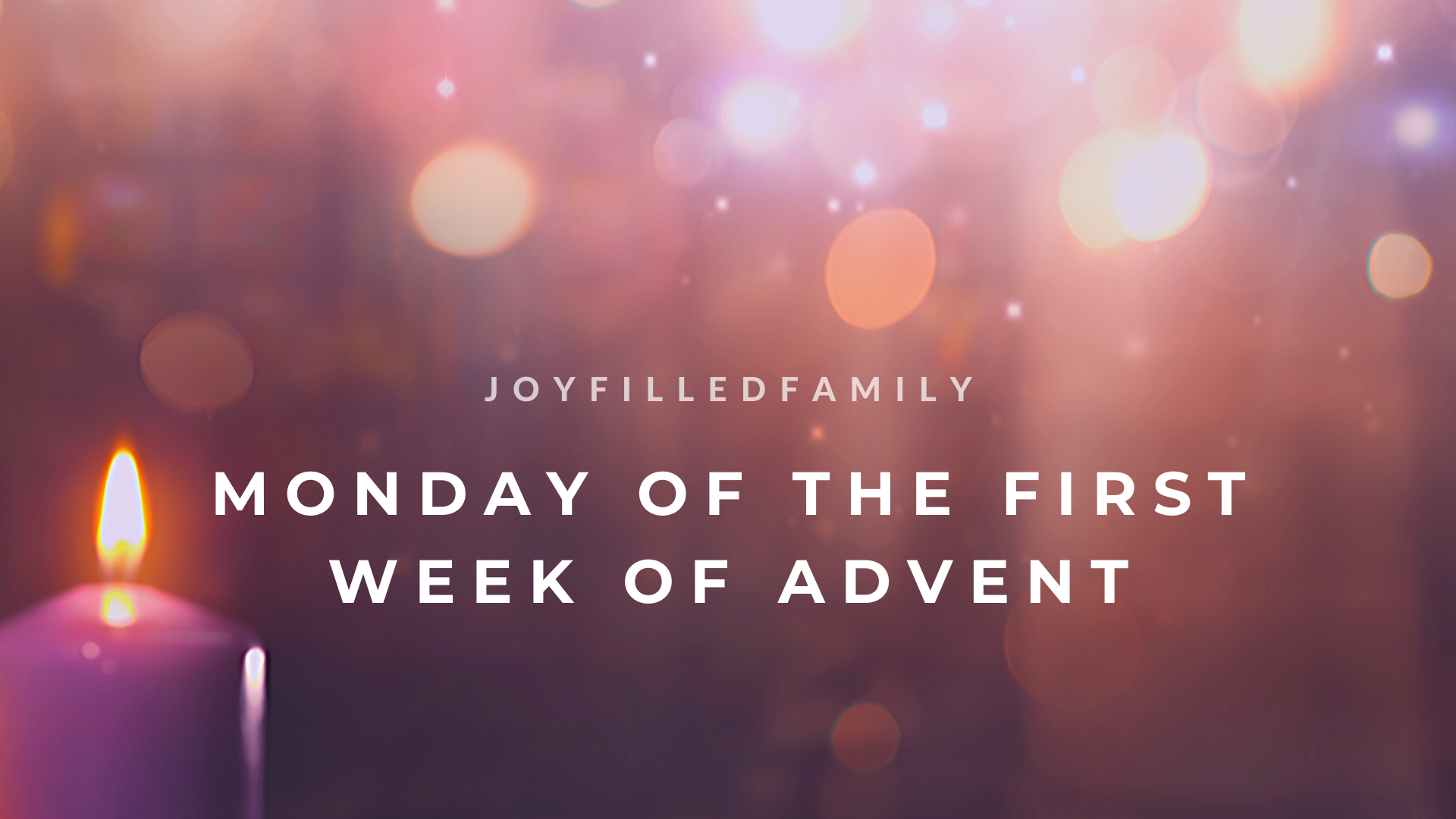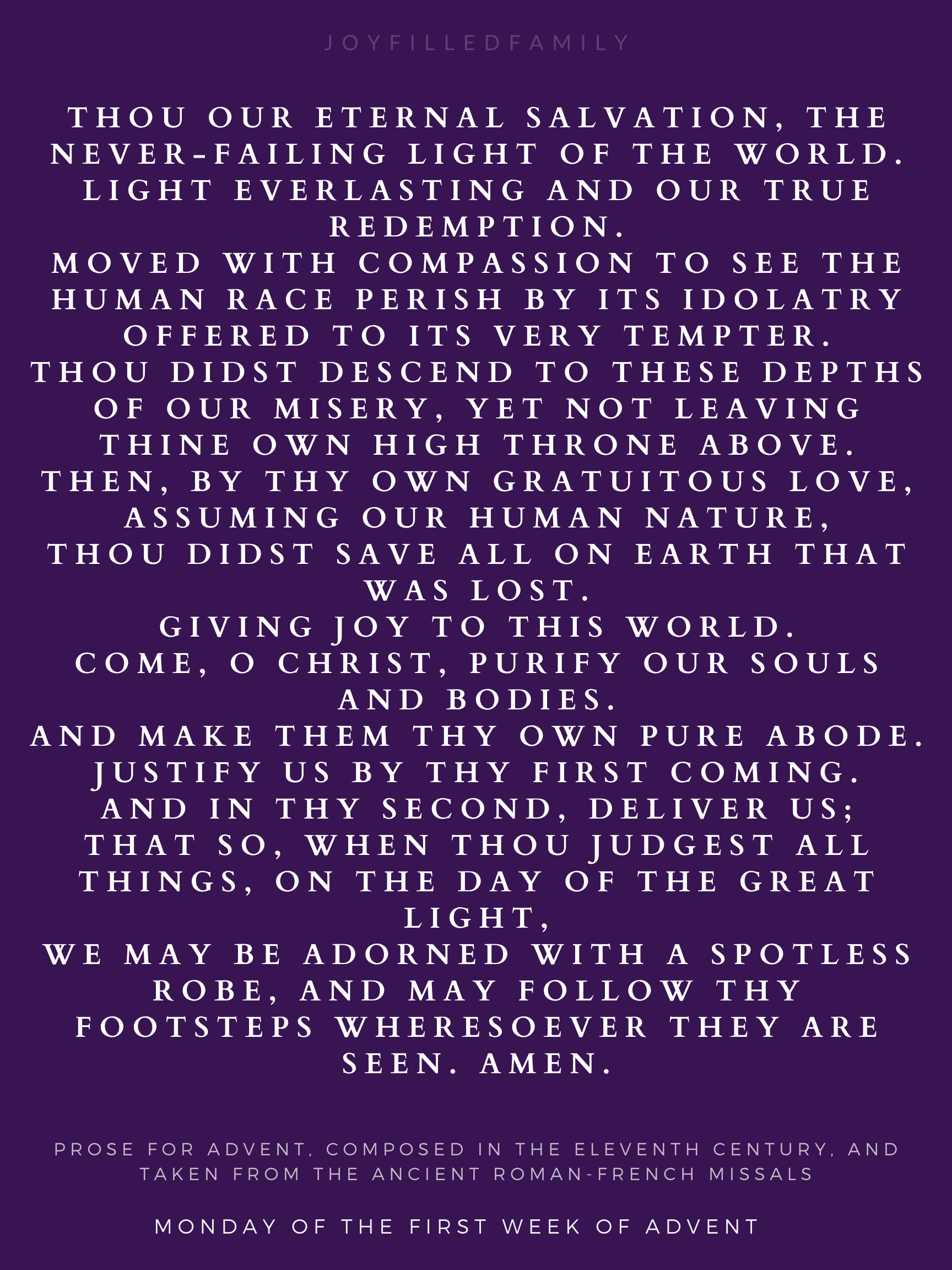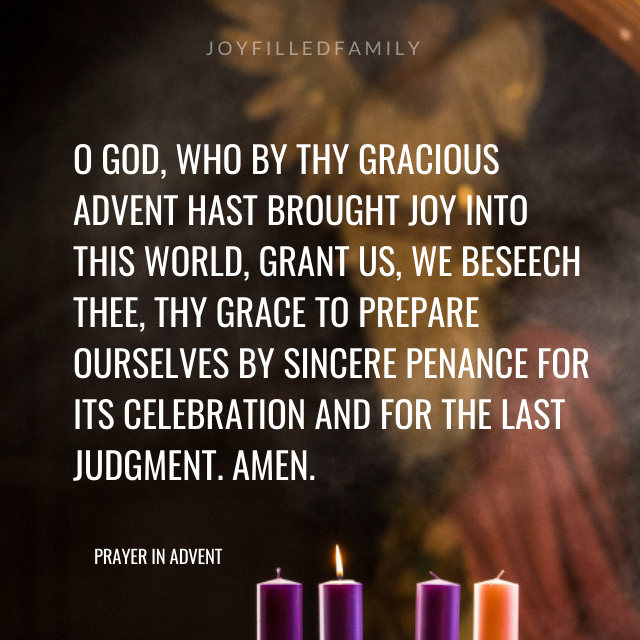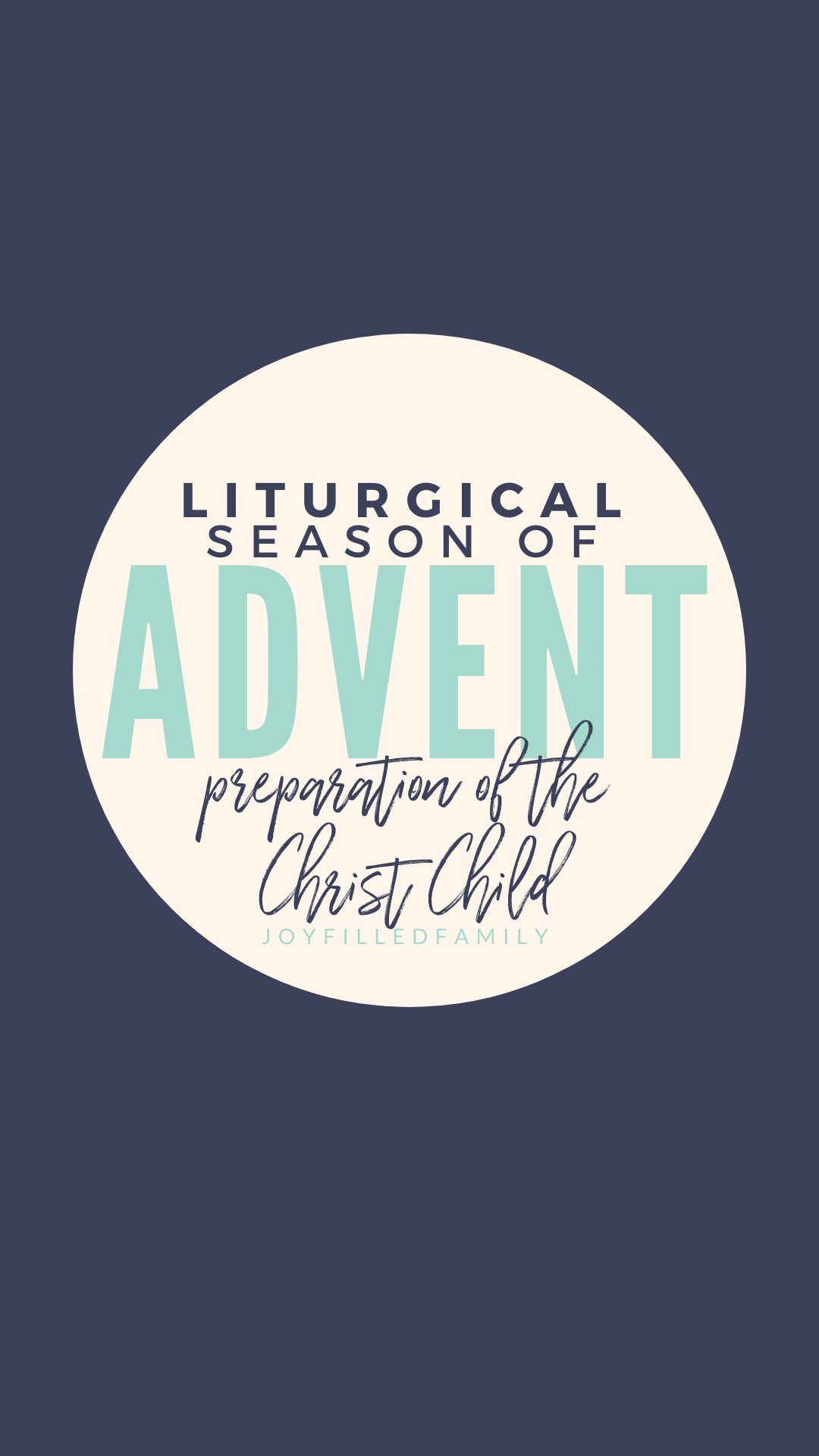TUESDAY OF THE FIRST WEEK IN ADVENT Regem venturum Dominum, venite, adoremus. Come, let us adore the King our Lord, who is to come.De Isaia Propheta. Cap. ii. Verbum, quod vidit Isaias filius Amos, super Juda et Jerusalem. Et erit in novissimis diebus praeparatus mons domus Domini in vertice montium, et elevabitur super colles: et fluent ad eum omnes Gentes. Et ibunt populi multi, et dicent: Venite, et ascendamus ad montem Domini et ad domum Dei Jacob: et docebit nos vias suas: et ambulabimus in semitis ejus, quia de Sion exibit lex, et verbum Domini de Jerusalem. From the Prophet Isaias. Ch. ii. The word that Isaias the son of Amos saw concerning Juda and Jerusalem. And in the last days the mountain of the house of the Lord shall be prepared on the top of mountains, and it shall be exalted above the hills: and all nations shall flow unto it. And many people shall go, and say: Come and let us go up to the mountain of the Lord, and to the house of the God of Jacob : and he will teach us his ways: and we will walk in his paths, for the law shall come forth from Sion, and the word of the Lord from Jerusalem. How the Church loves to hear and say these grand words of the prophet: Come, let us go up to the mountain of the Lord! She repeats them in the Lauds of every feria in Advent; and her children bless the Lord, who, that we might have no difficulty in finding Him, has made Himself like to a high mountain; high, indeed, yet can we all ascend it. It is true that, at first, this mountain is, as we learn from another prophet, a small stone which is scarcely perceptible, and this to show the humility of the Messias at His birth ; but it soon becomes great, and ail people see it, and are invited to dwell on its fertile slopes, yea, to go up to its very summit, bright with the rays of the Sun of justice. It is thus, O Jesus, that Thou callest us all, and that Thou approachest towards all, and the greatness and sublimity of Thy mysteries are put within the reach of our littleness. We desire to join, without delay, that happy multitude of people which is journeying on towards Thee ; we are already with them; we are resolved to fix our tent under Thy shadow, 0 Mountain ever blessed ! There shelter us, and let us be out of reach of the noise of the world beneath us. Suffer us to go so far up, that we may lose all sight of that same world's vanities. May we never forget those paths which lead even to the blissful summit, where the mountain, the figure, disappears, and the soul finds herself face to face with Him, whose vision eternally keeps the angels in rapture, and whose delight is to be with the children of men ! [Prov. viii. 31.] HYMN FOR THE TIME OF ADVENT (Composed in the ninth century, and taken from the hymnarium of B. Joseph-Maria Tommasi) Sol, astra, terra, sequoia, Adventum Dei altissimi, Prolem exc&Isi germisis, Dives et mops concrepent: Olim promissum patribus Partum puellae inclytum, Natum ante luciferam, Dei potentis Filium. Venturum Regem glorise, Deum regnare regibus; Hos tern calcare improbum, Mundum sanare languidum. Lsotentur simul angel i, Omnes exsultent populi: Excelsns venit humilis, Salvare quod perierat. Deus et homo oritur, Sanctaque regnat Trinitas; Cosevus Patri Filius, Terris descendit Dominus. Clament prophetse ©t pro-phetent: Emmanuel jam prope est; Mutorum linguae jam sonent, Claudi in occursum pergite. Agnus et fera bestia Simul manducent paleas: Agnoscat bos et asinus Jacentem in prsesepio. Signum regale emicans Sacrum prseeedit Verticem; Regali nato nobili, Beges parate munera. O quam beatum nuntium Virgo Maria audiit! Credendo mater foeta fit, Et virgo virum nesciit. Omnes gentes et insula, Magnum triumphum plau-dite, Cursu cervorum eurrite: Redemptor ecce jam venit. Discant caecorum oeuli, Clauso sedentes lumine, Noctis tenebras solvere, Lumen verum pereipere. Gens Galilsea et Graecia Credat, Persa et India : Dignando Deus homo fit, Et Verbum cum Patre manet. Laus, honor, virtus, g] Deo Patri, et Filio, Una cum sancto Spiritu, In sempiterna ssecula. Amen. May the sun, and stars, and land, and sea, sound forth the coming of the most high God: may the rich and poor unite their songs of praise to the Son of the supreme Creator ! He is the Saviour promised to our fathers; the glorious offspring of a Virgin: the Son of the mighty God bom of him before the morning star. He is the King of glory, and is coming to rale as God over kings, trample our wicked enemy beneath his feet, and heal this sick world of ours. Let the angels rejoice x let all nations exult; he tlM is high is coming in lowliness to save what had been lost. A God-Man is born, and the holy Trinity reigns; the Son co-eternal with the Father, our Lord, descends upon our earth. Let the prophets cry out, and prophesy: Emmanuel is nigh unto us. Let the tongues of the dumb speak, and ye, poor lame ones, run to meet him. Let the lamb and the wild beast feed with each other: let the ox and the ass know him that lies in the manger. The royal glittering standard ushers in our divine Chief: ye kings prepare your gifts for the noble and royal Babe. O the blessed message sent to the Virgin Mary ! By believing she conceives; she is a Mother, and a Virgin knowing not man. All ye nations and islands applaud this grand triumph. Run swiftly as the stag, lo ! the Redeemer is coming. Let the eyes of the blind, who have been sitting in darkness, now learn to throw off the murky night, and open to the true light. Let Galilee, and Greece, and Persia, and India, receive the faith: a God deigns to become man, and remains the Word with the Father. Praise, honour, power, glory, be to God the Father, and to the Son, together with the Holy Ghost, for eternal ages. Amen. PRAYER FROM THE GALLICAN MISSAL (In Adventu Domini, Contestatio) Deus, cui proprram est ac singular©, quod bonus es, et nulla unquam a te es commutation© diversus; propitiare supplicationibus nostris; et EcclesisB tufe misericor-diam tuam, quam confitemur, ostende, manifestans plebi tuas Unigeniti tui mirabile Saeramentum: ut universitate nationum perficiatur, quod per Verbi tui Evangelium promisisti; et habeat plenitudo adoptionis, quod prsetulit testificatio veritatis. Per Christum Dominum nostrum. Amen. O God, whose nature and property is goodness, and with whom there is no change, be propitious to our prayers, and show to thy Church that mercy of thine which we confess; show to thy people the wonderful mystery of thy only-begotten Son; that thus, what thou hast promised by the Gospel of thy Word, may be fulfilled by all nations coming to the faith, and the testimony of truth may be verified by the completion of adoption. Through Christ our Lord. Amen.
Monday of the First Week of Advent
MONDAY OF THE FIRST WEEK OF ADVENT
Dom Prosper Guéranger
Regem venturum Dominum, venite, adoremus.
Come, let us adore the King our Lord, who is to come
De Isaia Propheta.
Cap. i
Lavamini, mundi estote, auferte maluni cogitationum vestrarum ab oculis meis: quiescite agere perverse, discite benefacere: quaerite judicium, subvenite oppresso, judicate pupillo, defendite viduam. Et venite, et arguite me, dicit Dominus. Si fuerint peccata vestra ut coccinum, quasi nix dealbabuntur: et si fuerint rubra quasi vermiculus, velut lana alba erunt.
From the Prophet Isaias.
Ch. i.
Wash yourselves, be clean, take away the evil of your devices from my eyes: cease to do perversely, learn to do well; seek judgement, relieve the oppressed, judge for the fatherless, defend the widow. And then come, and accuse me, saith the Lord. If your sins be as scarlet, they shall be made as white as snow; and if they be red as crimson, they shall be white as wool

The Saviour, who. is so soon to be with us and to save us, warns us not only to prepare ourselves to appear before Him, but also to purify our souls. 4 It is most just,’ says St. Bernard, ‘ that the soul, which was the first to fall, should be the first to rise. Let us therefore defer caring for the body, until the day when Jesus Christ will come and reform it by the Resurrection; for, in the first coming, the Precursor says to us: “Behold the Lamb of God, who taketh away the sins of the world.” Observe, he says not the maladies of the body, nor the miseries of the flesh; he says sins, which are the malady of the soul, and the corruption of the spirit. Take heed, then, thou my body, and wait for thy turn and time* Thou canst hinder the salvation of the soul, and thine own safety is not within thy reach. Let the soul labour for herself, and strive thou too to help her, for if thou sharest in her sufferings thou wilt share in her glory. Retard her perfection, and thou re-tardest thine own. Thou wilt not be regenerated until God. sees His own image restored in the soul. [Sixth Sermon of Advent.] Let us, then, purify our souls. Let us do the works of the spirit, not the deeds of the flesh. Our Saviour’s promise is most clear; He will turn the deep dye of our iniquities into the purest whiteness. He asks but one thing of us : that we sin no more. He says to us : 6 Cease to do perversely, and then come and accuse Me, come and complain against Me, if I do not cleanse you.5 O Jesus ! we will not defer a single day of this holy season ; we accept, from this moment, the conditions Thou offerest us. We sincerely desire to make our peace with Thee ; to bring the flesh into subjection to our spirit, to make good all the injustice we have committed against our neighbour, and to hush, by the sighs of our heart-felt compunction, that voice of our sins which has so long cried to Thee for vengeance.
PROSE FOR THE TIME OF ADVENT
(Composed in the eleventh century, and taken from the ancient Roman-French missals)
Salus aeterna, indeficiens mundi vita.
Lux sempiterna, et redemptio vera nostra.
Condolens humana perire saecla per tentantis numina.
Non linquens excelsa, adisti ima propria dementia.
Mox tua spontanea gratia assumens humana,
Quae fuerant perdita omnia, salvasti terrea.
Ferens mundo gaudia.
Tu animas et corpora nostra, Christe, expia,
Ut possideas lucida nosmet liabitacula.
Adventu primo justifica.
In secundo nosque libera;
Ut cum facta luce magna, judicabis omnia,
Compti stola incorrupta, nosmet tua subsequamur mox vestigia quocumque visa. Amen,
Thou our eternal salvation, the never-failing light of the world.
Light everlasting and our true redemption.
Moved with compassion to see the human race perish by its idolatry offered to its very tempter.
Thou didst descend to these depths of our misery, yet not leaving thine own high throne above.
Then, by thy own gratuitous love, assuming our human nature,
Thou didst save all on earth that was lost.
Giving joy to this world.
Come, O Christ, purify our souls and bodies.
And make them thy own pure abode.
Justify us by thy first coming.
And in thy second, deliver us;
That so, when thou judgest all things, on the day of the great light,
We may be adorned with a spotless robe, and may follow thy footsteps wheresoever they are seen. Amen.

PRAYER FROM THE AMBROSIAN BREVIARY
(Second Sunday of Advent)
Dona, quaesumus, omnipotens Deus, cunctae familiae tuae hanc voluntatem, Christo Filio tuo, Domino nostro venienti, in operibus justis apte occurrere: ut ejus dexterae sociati, regnum mereamur possidere coeleste. Per eumdem Christum Dominum nostrum. Amen.
O almighty God! grant, we beseech thee, unto all this thy family, the desire of meeting, by good works, thy Son, Christ our Lord, who is coming to us; that being placed on his right hand, we may deserve the possession of the heavenly kingdom. Through the same Christ our Lord. Amen.
First Sunday in Advent
Veni, Veni, Emmanuel
Anticipating the birth of Our Lord, the liturgy reminds us also of His second coming.

FIRST SUNDAY IN ADVENT
Fr. Goffine
The first Sunday in Advent is the first day of the Church Year, and the beginning of the holy season of Advent. The Church commences on this day to contemplate the coming of the Redeemer, and with the prophets to long for Him; during the entire season of Advent she unites her prayers with their sighs, in order to awaken in her children also the desire for the grace of the Redeemer; above all to move them to true penance for their sins, because these are the greatest obstacles in the path of that gracious Advent; therefore she prays at the Introit of the day’s Mass:

INTROIT To Thee, O Lord, have I lifted up my soul: in Thee, O my God, I put my trust; let me not be ashamed: neither let my enemies laugh at me: for none of them that wait on Thee shall be confounded. Show me, O Lord, Thy ways, and teach me Thy paths (Ps. 24). Glory be to the Father.
COLLECT Raise up, we beseech Thee, O Lord, Thy power, and come; that by Thy protection we may deserve to be rescued from the threatening dangers of our sins, and to be saved by Thy deliverance. Through our Lord.
EPISTLE (Rom. 13:11‑14). Brethren, knowing the time, that it is now the hour for us to rise from sleep: for now our salvation is nearer than when we believed. The night is past, and the day is at hand. Let us therefore cast off the works of darkness, and put on the armor of light. Let us walk honestly, as in the day: not in rioting and drunkenness, not in chambering and impurities, not in contention and strife; but put ye on the Lord Jesus Christ.
What does St. Paul teach us in this epistle?
After fully explaining the duties of a Christian life to the Romans who were converted mainly by St. Peter, he exhorts them to hesitate no longer to fulfil these duties, and he seeks to move their hearts by this time of grace, presented them by the Christian dispensation, and by the shortness of the time of grace.
What is here meant by sleep?
The stupidity and blindness of the soul that, forgetting her God, is sunk in a lukewarm, effeminate, slothful and lustful life, which, when it is gone, leaves nothing more than a dream.
Why does St. Paul say, “salvation is nearer”?
He wishes to impress upon the Romans that they now have far greater hope of salvation than when they first became Christians, and that they should secure it by a pious life, because death, and the moment on which depended their salvation, or eternal reward, was drawing near. “What is our life,” says St. Chrysostom, “other than a course, a dangerous course to death, through death to immortality?”
What is the signification of day and night?
The night signifies the time before Christ, a night of darkness, of infidelity and of injustice; the day represents the present time, in which by the gospel Christ enlightens the whole world with the teachings of the true faith.
What are “the works of darkness”?
All sins, and especially those which are committed in the dark, to shun the eye of God and man.
What is the “armor of light”?
That faith, virtue and grace, the spiritual armor, with which we battle against our three enemies, the world, the flesh, and the devil, and in which armor we should walk honestly before all men. A Christian who in baptism has renounced the devil and all his pomps, must not live in vice, but must put on Christ Jesus, that is, must by the imitation of Christ’s virtues adorn his soul, as it were, with a beautiful garment. This text (verse 13) moved St. Augustine to fly from all works of uncleanness in which he had been involved, and to lead a pure life which he had before thought difficult.
ASPIRATION Grant, O Lord, that we may rise by penance from the sleep of our sins, may walk in the light of Thy grace by the performance of good works, may put on Thee and adorn our souls with the imitation of Thy virtues. Amen.

GOSPEL (Lk. 21:25‑33). At that time, Jesus said to his disciples: There shall be signs in the sun, and in the moon, and in the stars: and upon the earth distress of nations, by reason of the confusion of the roaring of the sea and of the waves, men withering away for fear and expectation of what shall come upon the whole world. For the powers of heaven shall be moved; and then they shall see the Son of man coming in a cloud with great power and majesty. But when these things begin to come to pass, look up and lift up your heads, because your redemption is at hand. And he spoke to them a similitude: See the fig tree, and all the trees; when they now shoot forth their fruit, you know that summer is nigh. So you also, when you shall see these things come to pass, know that the kingdom of God is at hand. Amen I say to you, this generation shall not pass away till all things be fulfilled. Heaven and earth shall pass away, but my words shall not pass away.

Why does the Church cause the gospel of the Last Judgment to be read on this day?
To move us to penance, and to induce us to prepare our souls for the coming of Christ, by placing the Last Judgment before our minds. Should not the thought of this terrible judgment, when all good and all evil will be revealed, and accordingly be rewarded or punished in the presence of the whole world‑should not this thought strengthen us in virtue!
What signs will precede the Last Judgment?
The sun will be obscured, the stars will lose their light and disappear in the firmament (Is. 13:10), lightning and flames will surround the earth, and wither up every thing; the powers of heaven will be moved, the elements brought to confusion; the roaring of the sea with the howling of the winds and the beating of the storms will fill man with terror and dread. Such evil and distress will come upon the world, that man will wither away for fear, not knowing whither to turn. Then will appear the sign of the Son of man in heaven, the holy cross, the terror of the sinners who have scorned it, the consolation of the just who have loved it (Mt. 24:30).
Why will all this come to pass?
Because as the people love the creatures of God so inordinately, more than the Creator, and use them only to His dishonor, He will destroy them in this terrible manner, arming all creatures for vengeance against His enemies (Wis. 5:8‑24, and showing by the manner of their destruction the evils which will fall upon all sinners. The darkness of the sun will indicate the darkness of hell; the blood-red moon, the anger and wrath of God; the disappearance and falling of the stars, will represent the fall of sinners into the abyss of hell and their disappearance from earth; and the madness of the elements, will exhibit the rage of the beasts of hell. Sinners will then vainly, and too late, repent that they have attached their hearts to things which will end so horribly, and that only increase their torments.
Why does Christ nevertheless command: “Lift up your heads, for your redemption is at hand”?
These words are spoken to the just who as long as they live on earth are like prisoners and exiles, but who at the Last Judgment will be taken body and soul into their long desired fatherland, the kingdom of heaven: into the freedom of the children of God. These will have reason to raise their heads, now bowed in mourning, and to rejoice.
How will the Last Judgment commence?
By the command of God the angels will sound the trumpets, summoning all men from the four parts of the earth to come to judgment (I Thess. 4:15). Then the bodies of the dead will unite with their souls, and be brought to the valley of Josaphat, and there placed, the just on the right, the wicked on the left (Mt. 25:33). Then the devils as well as the angels will appear; Christ Himself will be seen coming in a cloud, in such power and majesty that the sinners will be filled with terror. They will not dare to look at Him, and will cry to the mountains to fall upon them, and to the hills to cover them (Lk. 23:30).
How will the judgment be held?
The book of conscience, upon which all men are to be judged, and which closed with this life, will be opened. All good and evil thoughts, words, deeds and motives, even the most secret, known only to God, will then be as plainly revealed to the whole world as if they were written on each one’s forehead; by these each one will be judged, and be eternally rewarded, or eternally punished.
O God! If we must then give an account of every idle word (Mt. 12:36), how can we stand in the face of so many sinful words and actions!
Why will God hold a universal public Judgment?
Although immediately after death, a special private judgment of each soul takes place, God has ordained a public and universal judgment for the following reasons: First, that it may be clearly shown to all how just has been His private judgment, and also that the body which has been the instrument of sin or of virtue may share in the soul’s punishment or reward; secondly, that the justice which they could by no means obtain in this life, may be rendered before the whole world to the oppressed poor, and to persecuted innocence, and that the wicked who have abused the righteous, and yet have been considered honest and good, may be put to shame before all; thirdly, that the graces and means of salvation bestowed upon each, may be made known; fourthly, that the blessed providence of God which often permitted the righteous to suffer evil while the wicked prospered, may be vindicated, and it be shown on that day that His acts are acts of the greatest wisdom; fifthly, that the wicked may learn the goodness of God, not for their comfort or benefit, but for their greater sorrow, that they may see how He rewards even the slightest work performed for His love and honor; finally, that Christ may be exalted before the wicked on earth as before the good in heaven, and that the truth of His words may solemnly be made manifest.
ASPIRATION Just art Thou O God, and just are Thy judgments. Ah, penetrate my soul with holy fear of them, that I may be kept always in awe, and avoid sin. Would that I could say with the penitent St. Jerome: “Whether I eat or drink, or whatever I do, I seem to hear the awful sound of the trumpet in my ears: `Arise ye dead, and come to judgment.”‘
